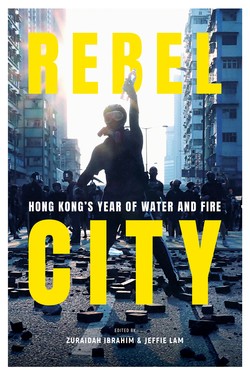Читать книгу Rebel City - South China Morning Post Team - Страница 18
На сайте Литреса книга снята с продажи.
New year, and a pandemic takes over
ОглавлениеThe new year brought Lam unexpected respite from the protests, only because of the arrival of the deadly coronavirus pandemic. She now led the administration’s efforts in combating the biggest public health crisis in years. Health professionals went on strike when Lam refused to seal Hong Kong’s border with the mainland, but she introduced a series of bolder-than-expected measures to deal with the outbreak.
To slow the spread of the coronavirus, Hongkongers had to get used to social-distancing measures that include a ban on public gatherings of more than four people and the temporary closure of places of worship, pubs, cinemas, spas and massage parlors. Restaurants were told to operate at half capacity and employers were asked to let staff work from home. The government announced a total relief package of HK$287.5 billion (US$37.1 billion) in cash handouts, tax breaks and a raft of subsidies aimed at easing the financial burden on residents and businesses.
While the Covid-19 outbreak ravaged countries worldwide, including in the US and Europe, by late April Hong Kong managed to keep the coronavirus under control. New infections were in single-digits and as of April 24, it recorded 1,035 cases and four deaths. For Lam, however, a sense of alienation from those closest to her lingered. In a letter sent to Beijing in March and leaked to the media, she allegedly complained about the “disappointing” pro-establishment bloc, accusing them of joining in criticizing the government’s response to the pandemic instead of being supportive. She called her Exco members “unsatisfactory” and claimed she was “facing enemies on all sides.” Her allies were angered, but Lam did not deny saying those words.
Lau Siu-kai, vice-chairman of the Chinese Association of Hong Kong and Macau Studies, a semi-official think tank, said the pandemic had upset the momentum of the protests and provided Lam an opportunity to recover some lost ground with the public. “Hong Kong’s fiscal reserves and medical system gave the government more leeway than many other countries in tackling the coronavirus,” he said, adding that Hongkongers could see how people elsewhere were worse off.
Despite all that had happened in 2019, he did not think Beijing wanted to remove Lam. “Replacing the chief executive would be equivalent to surrendering to the opposition and that would only bring endless troubles,” he said.
Alvin Yeung Ngok-kiu, leader of the Civic Party, said Lam would be mistaken to believe she could breathe a sigh of relief because Covid-19 had stopped the protests. “There will be more people joining because of the poor [coronavirus-related] policies,” he said.
The extradition bill saga cost Lam heavily in terms of her public approval ratings. Her popularity plummeted by more than 60 per cent from 47.4 out of 100 points in February 2019 to 18.1 points in February 2020, according to Hong Kong Public Opinion Research Institute surveys. Her handling of the Covid-19 crisis helped her claw her way up to 25.5 points in April.
At a closed-door meeting in the midst of the protests, Lam was quoted as saying: “Many people thought I died, but I won’t die.”
That was the top girl speaking.
— With reporting by Kimmy Chung
